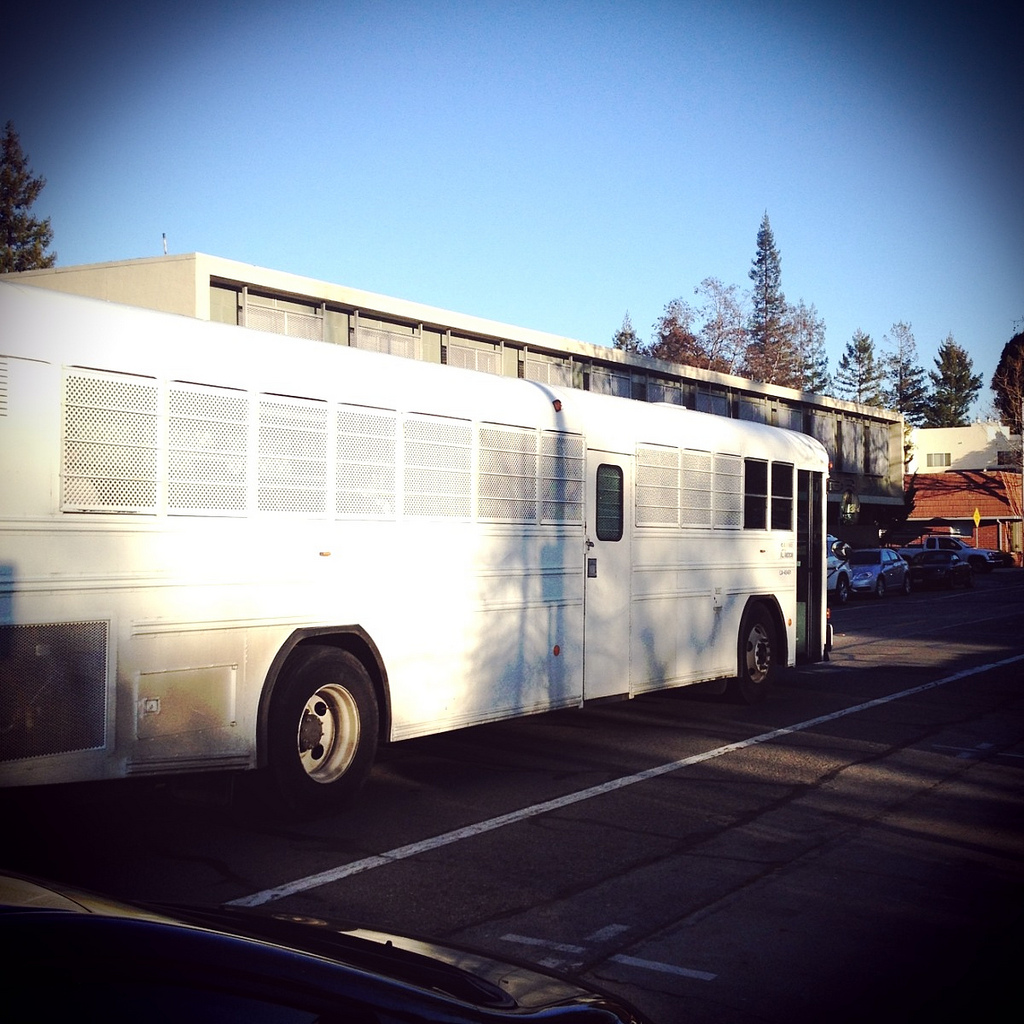Before his first phone interview, Tim Burgess, a former prisoner, sent Truthout an email describing his experience during transport from a state prison in Vermont to a private prison 1,000 miles away in Kentucky.
“Imagine being ripped from a sound sleep, told to pack your belongings,” he wrote. “Having orders shouted at you, and being shackled at 2 am, when you have not done anything wrong and were a model inmate. When you ask questions because you have a heart condition, the only answer is, ‘Quiet inmate!’ And that was the first 20 minutes…”
Prisoners are secretly moved through US cities every day by bus, van or even airplane. The longest trips can involve days in cramped seats with a limited range of motion; prisoners remain heavily shackled even on rest stops and during meals. Being transferred is already a disorienting experience for any prisoner, usually tearing them away from their families and friends. Prisoners are often forced to drop out of classes or lose some of their valued possessions like books or musical instruments.
However, an issue that is rarely touched on is the brutality of the transport itself: The journey between prisons can be a traumatic experience that lingers long after the hours spent on the road.

